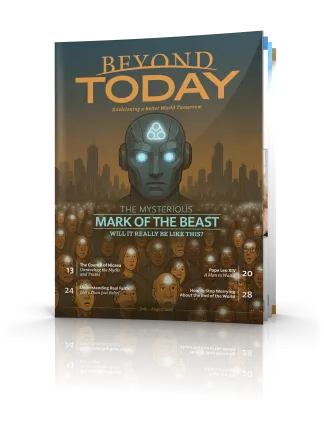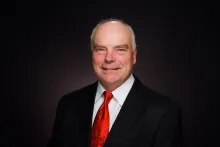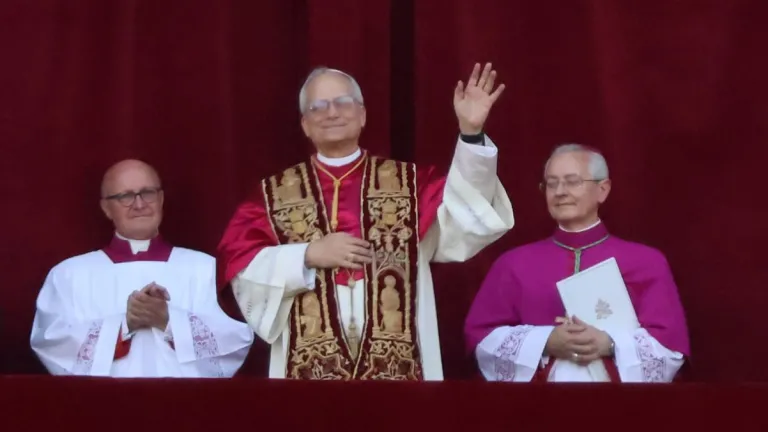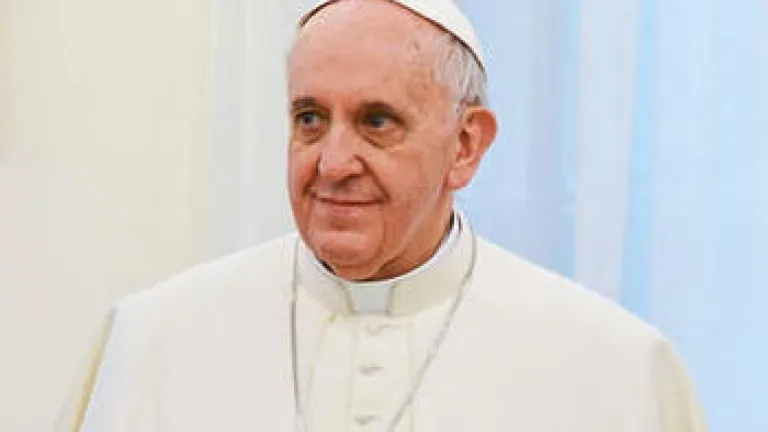Pope Leo the XIV: A Man to Watch

With the selection of a new pope, the world is waiting to see the direction he will take. In any case, as the spiritual leader of around 1.4 billion people, his positions and actions are consequential on a global scale.
During World War II, following the Teheran Conference in Iran between Allied leaders, Time magazine published a famous anecdote about a question asked by Soviet dictator Joseph Stalin, as relayed by the South African prime minister Jan Smuts: “Winston Churchill suggested to Stalin the possibility of the Pope’s being associated with some of the decisions taken. ‘The Pope,’ said Stalin thoughtfully. ‘The Pope. How many divisions has he?’” (Dec. 27, 1943). Decades later in 1991, Soviet Premier Mikhail Gorbachev found out the answer, in part due to the efforts of Pope John Paul II in helping to bring down communist rule in Europe.
Cardinal Robert Prevost made his first speech as Pope Leo XIV on the balcony of St. Peter’s Basilica, shortly after being elected pontiff on May 8, 2025. The native of the Chicago area became the first American in history to be chosen for the papal chair. The speech was given in Spanish and Italian, with a few mandatory phrases in Latin.
It’s early yet, but do we have any indications as to the course he will chart?
Following his predecessor, or returning to roots?
Pope Leo thrilled many in the audience as he praised his predecessor, Pope Francis, saying: “This is the peace of the Risen Christ, an unarmed peace and a disarming peace, humble and persevering. It comes from God, God who loves us all unconditionally. We still have in our ears that weak, but always courageous voice of Pope Francis as he blessed Rome!” The words “God who loves us all unconditionally” were interpreted as a signal that this new pope would be supportive of homosexuality and transgenderism being accepted in the Roman Catholic Church. Progressive church members, priests and others who supported these nontraditional teachings were beside themselves with joy! The liberation of Francis would continue!
But not so fast. On May 16 Pope Leo XIV delivered his first address to the Vatican’s diplomatic corps, and it was a shocker to many. In his first official address as pontiff, Pope Leo XIV offered a vision of peace and dialogue—but also delivered a strong reaffirmation of Catholic teachings on marriage and abortion. “Governments must invest in the family, founded upon the stable union between a man and a woman,” he said, calling the family “the foundation of peaceful societies.”
He also highlighted “respect for the dignity of every person, especially the most frail and vulnerable, from the unborn to the elderly,” echoing the Church’s opposition to abortion and euthanasia—positions Francis had also held, though often without strong commitment.
Francis was known for his repeated statement, “Who am I to judge?” Pope Leo seemed to be saying he would judge matters. His focus on “the unborn,” traditional family structures, and moral responsibility has already raised eyebrows among more progressive Catholics and many in the governments of Europe.
Ten days after his election, on May 18, Pope Leo XIV delivered the homily at the “Mass for the Initiation of the Petrine Ministry” in St. Peter’s Square. He astounded the audience by delivering it entirely in English, considered a nod to the United States. European Union leaders were not pleased, according to some reports.
His Francis-like dialogue was much reduced. The European Conservative posted an article titled, “Is Pope Leo XIV a Secret Conservative?” stating: “Prevost has a history of strongly criticizing the so-called LGBTQ+ movement, and much indicates that he’s not going to exercise much patience towards the gay ascendency in the Catholic Church. He has said in the past: ‘Western mass media is extraordinarily effective in fostering within the general public enormous sympathy for beliefs and practices that are at odds with the Gospel—for example abortion, homosexual lifestyle, euthanasia’” (Sebastian Morello, May 9).
In various ways he seems to be more of a traditionalist, choosing traditional vestments that Francis refused to wear following his election and seeming to support a return to the traditional Latin mass. His papal name also points in that direction.
Political involvement
The new pope is already jumping into politics. Italian Prime Minister Giorgia Meloni said that European and U.S. leaders welcomed U.S. President Donald Trump’s statement that Pope Leo XIV was interested in hosting Russia-Ukraine talks at the Vatican. The pope hosting a peace treaty conference would be historic in modern times. Yet things have since further escalated in that conflict.
Some have pointed out a history of social media posts over the past several years slamming President Trump’s positions on restricting immigration and deporting those in the country illegally—Prevost’s latest before becoming pope decrying Trump’s partnership with El Salvador’s President Bukele in deporting and incarcerating illegal aliens who’ve committed major crimes. And many are waiting to see what the pope will do in terms of the compromise with the Chinese government that gives that government say over who the Catholic church leaders in China are.
The world will see in future months the political will and goals of the new pope. How many divisions does Leo XIV have? We know that there is a world government coming on the scene. Daniel 8:23-24 tells us: “And in the latter time of their kingdom, when the transgressors have reached their fullness, a king shall arise, having fierce features, who understands sinister schemes. His power shall be mighty, but not by his own power; he shall destroy fearfully, and shall prosper and thrive; he shall destroy the mighty, and also the holy people.”
That world government will be aligned with a religious power in Europe (see our cover story in this issue). What part might Leo play in it with his divisions? He is a man to watch.
Leo a Significant Name in Papal History
There hasn’t been a pope named Leo in more than a century. “In his address to the College of Cardinals on May 10, Pope Leo XIV explained that he had ‘different reasons’ for choosing the name but he was mainly inspired by the most recent of his namesakes—Pope Leo XIII, who spent much of his papacy advocating for the rights of workers during the first industrial revolution” (Melissa Sartore, “Why Did the Pope Pick Leo? Here’s Why the Name Is So Important in the Catholic Church,” National Geographic, May 16, 2025).
A Vatican spokesperson said the choice involved applying the former Leo’s introduction of modern social doctrine to “workers in an age of artificial intelligence,” comparing the pace of change today with the earlier period (Christian Edwards, “What’s in a Name? The History of the Papal Name Leo,” CNN, May 8.)
But note that the new pope had other reasons too. The name Leo itself means “lion,” and perhaps there was the sense of restored strength, courage, regality, dignity and leadership. There is a storied chain of Pope Leos through history.
That began with Leo I in the fifth century, the first of three popes in history called “the Great.” Author Adrian Hilton noted: “Pope Leo’s intervention to persuade Attila the Hun not to invade Rome was crucial in augmenting the power of the Roman Church and laying the foundation of the temporal power of the popes. It was thus that the primacy of Rome’s bishop was asserted over all other bishops” (The Principality and Power of Europe, 1997, p. 27). Indeed, Leo I invoked the primacy of the apostle Peter supposedly laid out in Matthew 16 (see our Q&A on page 30 for more on this) along with Roman hereditary law to elevate the Bishop of Rome to the legal heir of Peter. Hilton continued: “As the Council of Chalcedon stated in 451: ‘Peter has spoken by Leo; let him be anathema who believes otherwise.’ From this, the doctrine that papal power was granted by Christ to Peter, and that power was passed on by Peter to his successors, began to take firm root.”
A later important figure, Leo III, led during a formative period, being the pope who crowned Charlemagne in 800 as the first Holy Roman emperor, producing a church-state union that persisted through medieval times and beyond.
Pope Leo IX presided over what led to the Great Schism of 1054 between western, Latin Catholics and the eastern, Greek Orthodox. The patriarch of Constantinople saw himself equal to the bishop of Rome, bringing tension. The pope sent a delegation to settle the dispute, but the patriarch was excommunicated (the pope died just before his delegate carried out the excommunication).
Centuries later, Pope Leo X, of Italy’s Medici family, presided over another great split, as he excommunicated the Protestant Reformer Martin Luther in the 16th century when Luther refused to recant his positions.
There have been efforts over the last few decades to heal these past divisions, and Leo XIV has stated that Christian unity is a priority for him. He will be meeting with the Orthodox patriarch Bartholomew later this year at Nicaea in honor of the 1,700th anniversary of the famed church council there. Yet ecumenical work to restore ecclesiastical unity evidently won’t include compromising on papal leadership.






